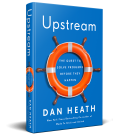We’ve received a fair number of angry letters on our anti-mutual-funds column in Fast Company — exclusively, btw, from mutual fund employees or investment advisors. Here’s a teaser:
Let’s pull off the Band-Aid quickly. You’ve come to believe that mutual funds are a smart place to put your money. They’re not.
That’s the assessment of the smartest minds in finance, supported by a mountain of historical data. If you own actively managed mutual funds, you will almost certainly retire with less money — a lot less money — than if you’d simply dumped your money into boring index funds. So two questions: How can this possibly be true? And why, in gleeful defiance of the data, do more people keep buying mutual funds every year?
For more mutual-funds bashing, check out this great NYT piece by Mark Hlbert. Money quote:
A new study builds on this research by applying a sensitive statistical test borrowed from outside the investment world. It comes to a rather sad conclusion: There was once a small number of fund managers with genuine market-beating abilities, as judged by having past performance so good that their records could not be attributed to luck alone. But virtually none remain today. Index funds are the only rational alternative for almost all mutual fund investors, according to the study’s findings.
And for those of you who want the Extended Mutual Funds Hatred Package, go buy David Swensen’s book.
Let’s keep that anger flowing!



